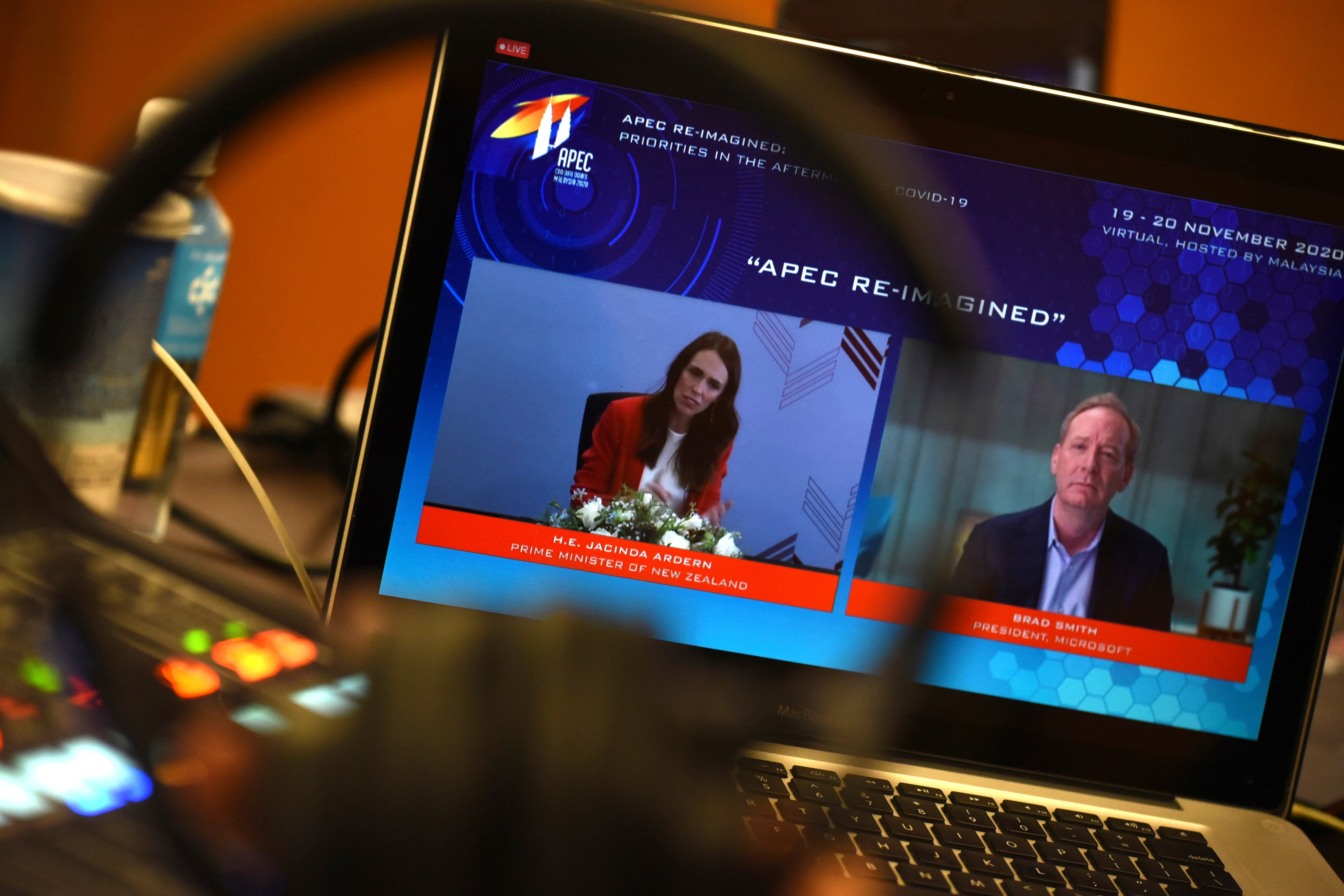Japan, New Zealand press for open markets to boost recovery
Leaders from Japan and New Zealand have warned countries against the temptation of retreating into trade protectionism, saying that keeping markets open is the way to revive a global economy battered by COVID-19

Your support helps us to tell the story
From reproductive rights to climate change to Big Tech, The Independent is on the ground when the story is developing. Whether it's investigating the financials of Elon Musk's pro-Trump PAC or producing our latest documentary, 'The A Word', which shines a light on the American women fighting for reproductive rights, we know how important it is to parse out the facts from the messaging.
At such a critical moment in US history, we need reporters on the ground. Your donation allows us to keep sending journalists to speak to both sides of the story.
The Independent is trusted by Americans across the entire political spectrum. And unlike many other quality news outlets, we choose not to lock Americans out of our reporting and analysis with paywalls. We believe quality journalism should be available to everyone, paid for by those who can afford it.
Your support makes all the difference.Leaders from Japan and New Zealand on Friday warned countries against the temptation of retreating into trade protectionism, saying that keeping markets open is the way to restore a global economy battered by the COVID-19 pandemic.
Speaking by video link from Tokyo to a meeting of Asia-Pacific CEOs, Japan's Prime Minister Yoshihide Suga said a “free and open Indo-Pacific will be the cornerstone for the prosperity of this region."
Japan and 14 other Asian neighbors on Sunday signed the world’s largest free trade agreement, the Regional Comprehensive Economic Partnership. Suga, who took office in September, said Japan will next push for a wider free trade pact among the 21 members of the Asia-Pacific Economic Cooperation.
“Amidst a risk of inward-looking temptations in the face of the slump of the global economy, making rules for a free and fair global economy is critically important," he said. "While continuing to promote WTO reform, Japan will aspire for the Free Trade Area of the Asia-Pacific.”
The event came ahead of a meeting late Friday of APEC leaders hosted by Malaysia that will be conducted via video conference due to the pandemic. Malaysian officials said U.S. President Donald Trump, who is busy challenging the outcome of the recent presidential election, will participate.
Trump last participated in the APEC forum in 2017 and last weekend skipped the East Asia Summits, also held online. Trump, or his representative, was initially due to speak to the CEOs Friday morning but that was canceled, with no reasons given.
New Zealand Prime Minister Jacinda Ardern, who spoke to the CEOs after Suga, voiced hope that APEC leaders will agree at their meeting on new development goals for the next 20 years that focus on free trade, digital innovation, and sustainability and inclusion.
“As we confront this generation’s biggest economic challenge, we must not repeat the mistakes of history by retreating into protectionism. APEC must continue to commit to keeping markets open and trade flowing," she said.
As APEC chair for next year, Ardern urged APEC economies to work together to “reignite growth and plan for a long-lasting economic recovery" that is sustainable, inclusive and digitally enabled. New Zealand will also host APEC meetings virtually due to the pandemic.
APEC’s 21 member economies are Australia, Brunei, Canada, Chile, China, Hong Kong, Indonesia Japan, South Korea, Malaysia, Mexico, New Zealand, Papua New Guinea, Peru, Philippines, Russia Singapore, Taiwan, Thailand and the U.S.